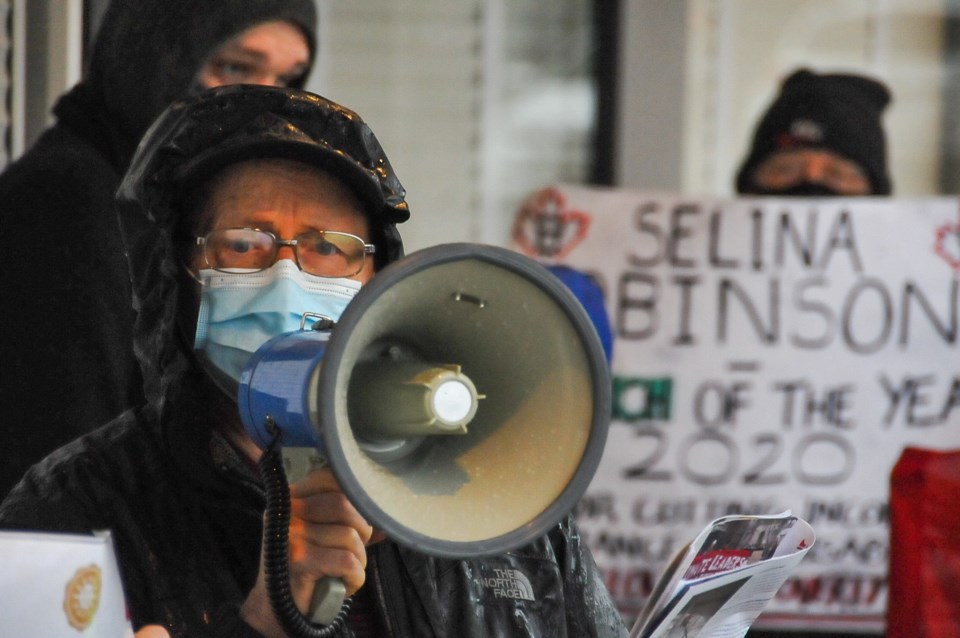Tricity News: B.C. government announces ‘largest-ever permanent increase to income assistance’
Posted March 17, 2021
Posted on March 17, 2021
 British Columbians on income and disability assistance will soon get a permanent $175-a-month boost as part of a package of new spending announced by the province Tuesday.
British Columbians on income and disability assistance will soon get a permanent $175-a-month boost as part of a package of new spending announced by the province Tuesday.
The increased payments, described by the province as “the largest-ever permanent increase to income assistance,” will be automatic and set to begin in April 2021, according to a press release from the Ministry of Social Development and Poverty Reduction.
“Now that we are seeing signs of some economic recovery from COVID-19, it’s essential we provide the stability of a permanent rate increase for people and families, including 49,000 children who live in poverty,” said Minister of Social Development and Poverty Reduction Nicholas Simons.
HOW MUCH WILL I RECEIVE?
According to the province, a single person on income assistance will now receive $935 per month, whereas a single person on disability assistance will get a monthly allowance of $1,358.42.
For a couple on income assistance, the allowance rises to $1,427.22 per month, and for a couple on disability assistance, the monthly amount will increase $350 per month to $1,947.56.
Single parents with one child will get $1,270.58 if on income assistance and $1,694.08 if on disability assistance, and couples with one child will receive $1,611.06 per month if on income assistance and $2,131.56 per month if on disability assistance.
Federal and provincial child benefits will raise those amounts by $697.
SENIORS SUPPLEMENT TOPPED UP
In addition, the province announced it will be increasing the senior’s supplement by another $50, raising the maximum rate for a single person to $99.30 per month.
The increase is projected to benefit about 20,000 low-income seniors and represents the “first increase to the supplement since 1987,” according to the ministry.
A $20 boost to people living on income assistance at special care facilities will bring their monthly allowance to $115, and is meant to support the purchase of basic personal items.
In total, the government says more than 300,000 people are expected to benefit from the increased rates.
BOOST COMES AFTER CRITICISM OF ‘CLAWBACK’
Frustration over income and disability benefits boiled over into protest at the end of 2020 after what critics described as “clawbacks” in monthly payments to people with disabilities across the province.
In the days after Christmas, a group gathered outside of Coquitlam-Maillardville MLA Selina Robinson’s office to give her the “2020 Grinch of the Year award.”
“She’s the finance minister, she’s the one who essentially clawed back this money from people. So she deserves this award for a personal attack on the province’s poorest people,” said Tabitha Naismith at the time, an organizer with the anti-poverty group ACORN.
Earlier in the pandemic, the BC NDP government began issuing a $300 COVID-19 crisis supplement for those on income and disability assistance.
Then came the BC Recovery Benefit on Dec. 18, tax-free payments of up to $500 for individuals and up to $1,000 to families. Those on disability and income assistance, the government said, would be among the 3.7 million British Columbians eligible for the just-in-time-for-Christmas payments (many are still waiting for payments to come through due to an error in their application).
At the same time, the $300 crisis supplement was to end in December, replaced by a $150 a month in the new year, and cut completely by March 2021.
“To claw back the $300 is inhumane,” said Naismith. “I’m a single parent. I have two small children. This extra $300 a month has helped me get food for school, clothing, the things that they need.”
Speaking before the legislature on Dec. 17, Robinson pushed back against the idea that the reduction in disability and income assistance payments amounted to a “clawback.”
“The program, the crisis supplement, ends. It ends. It ends this month. There is nothing beyond that. Rather than just have the program end, we’re saying let’s do another supplement on top of the recovery benefit so that people can have some support over the next number of months,” said Robinson.
The new funding fills at least part of the gap left open by the end of the crisis supplement.
******
Article by Stefan Labbe for Tricity News
